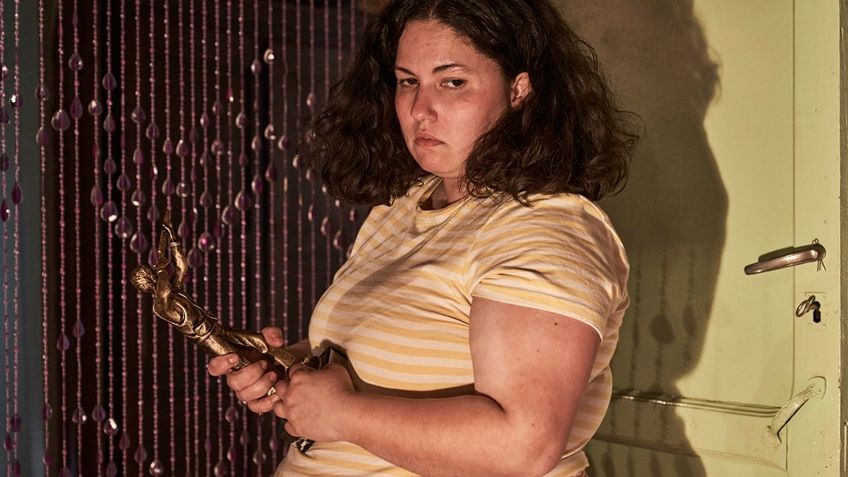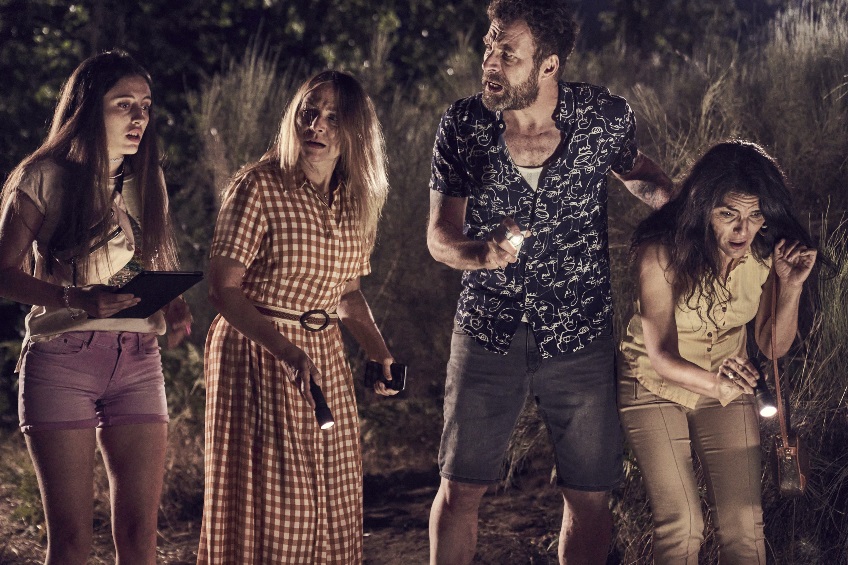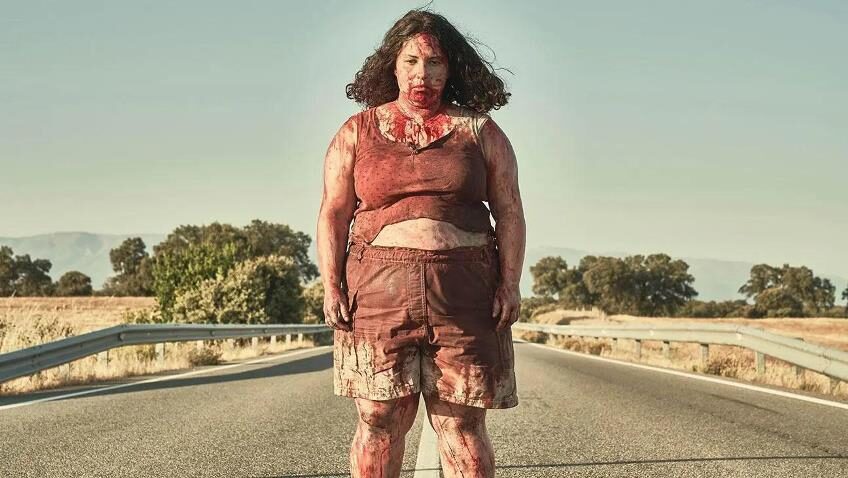Joyce Glasser reviews Piggy (January 6, 2023) Cert 18, 100 mins.
With Piggy Spanish writer-director Carlota Pereda joins the ranks of female directors of psychological horror/thriller films like Julia Ducournau (Raw, Titane), Jennifer Kent (The Babadook) and Rose Glass (Saint Maud) in putting a woman at the centre of a horror movie without objectifying or victimising her for being a woman. While their films are as violent as any made by a male director, there is a psychological – and metaphorical – element that justifies, if not tempers, the violence. Pereda takes the topical subject of bullying and body shaming to the extreme, at which point the film loses its impact.
Sara (courageously played by Laura Galán, who starred in Pereda’s short of the same title) does not have much going for her. The teenager lives in a small and smallminded rural town in northeastern Extremadura with her parents and brother. At school she is a social outcast because of her obesity and social awkwardness. We can imagine that these conditions feed upon one another and the more a trio of popular girls at her high school bully her, the more she resorts to comfort food and social seclusion.
Curiously, her parents do not seem to have noticed their daughter’s alarming obesity and are insensitive to her loneliness. On social media, the cliquey, popular girls in her class call her Piggy. Her corpulent father owns a butcher’s shop where Sara works after school which makes the pun behind this nickname work so well.

One day, Sara is at the shop counter doing her homework when pretty, popular Claudia (Irene Ferreiro) reluctantly comes in. She has explained to her friends that she has to collect an order for her mother: hers being one of the few families who have not switched to the supermarket.
Claudia manages to mime a shallow hello when she enters the shop but her best friends Maca (Claudia Salas) and Roci (Camille Aguilar), who know Sara can see them, make vomiting gestures through the shop window. They take a picture of the family in the shop and upload it with the caption, “the three little pigs.”
It is a sweltering afternoon and on her phone Sara watches the in-crowd socialise at the pool. After work, she goes there herself only to be bullied by Maca and Roci who play “catch the pig fish,” almost drowning Sara in a net. When Sara sees them take her clothes from her rucksack, she appeals to Claudia, who does not intervene.
A heavy-set stranger (Richard Holmes) at the pool watches these events. Sara, hysterical, runs home on the road in her wet bathing costume but the bullies have not had their full. They follow in their car, yelling “come on bacon,” while pulling the straps off her costume so that she is running home bare breasted with just the bottoms of her costume. This semi-nudity, and the graphic violence in the final quarter is why the film received an 18 certificate.
A white truck passes and what transpires is shot and edited in such a way that we do not have the total picture. This is intentional, but clumsily worked out so that the rest of the film suffers from the confusion. Without giving too much away, Sara hears an appeal for help. She then looks up and stares at the burly stranger in the shadows who throws a towel across to her. If this is her saviour, he’s an unsavoury one. Wrapped only in a towel, Sara, hysterical, runs home to take a shower.

When the police come to question Sara about events at the pool she is unhelpful. Are her lies down to trauma or revenge? As her mother Elena (Pilar Castro, terrific) tries to protect her daughter from the police, what is revealed is the torment Sara has endured from her classmates. Her mother tells Sara she should go on a diet and tries to prevent her compulsive eating. What the kid needs is a good doctor and psychiatrist, but that’s not what she gets.
Pereda holds our attention as we wait to discover the fate of the missing young women and how the relationship between the stranger in the white van and Sara will develop. But the tension inherit in the situation turns to frustration as we try to work out what is going on in Sara’s mind.
The stranger is not some incredible hulk who identifies with Sara as an outcast and wants to help her, but an enabler. He brings her the fattening food she craves but that her mother is finally trying to deny her. He will attack anyone who is not on Sara’s side but does not differentiate between her mother and the those wishing her harm. And he seems to care for Sara only if she will join him in enacting the most heinous and sadistic revenge on her wrongdoers.
Earlier in the film we learn that Sara’s father took her hunting and taught her to shoot. There is a gratifying scene in the chaotic, violent climax in which we realise that this information was not gratuitous. Sara turns out to be a near perfect shot.
Still, it is unclear what we are to make of this anti-hero. Sara seems to wallow in her obesity while hating herself and others for her condition. At the same time, the camera turns her into something grotesque. The result is that while it is easy to feel her anguish, it is hard to like her. Did her conscience catch up with her in the nick of time or was she turned into a heroine by default?




